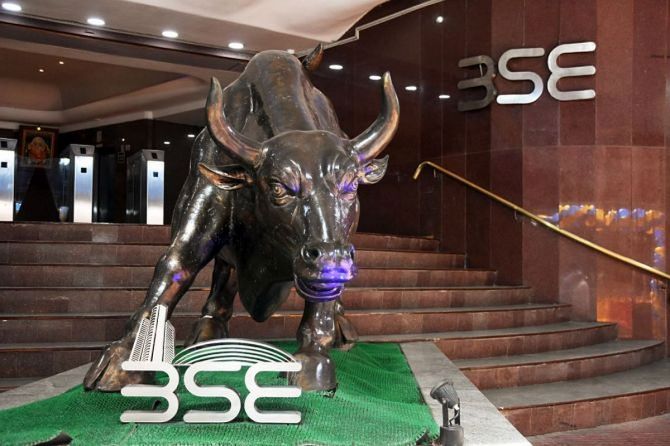Higher valuation creation in companies beyond the top 100 has given the domestic markets a shot at a $4 trillion market capitalisation (mcap) — a club exclusive to three countries currently.

On November 23, the mcap of all BSE-listed stocks finished at a new record of Rs 328.33 trillion ($3.94 trillion), despite the benchmark indices ending with losses.
The mcap was propelled by gains in the broader market, including small and midcap stocks — a trend dominant this year.
Stocks outside the top 100 now contribute 40 per cent to the country’s mcap, up from 35 per cent at the start of this financial year (2023-24).
Since April 1, India’s mcap has risen 27 per cent.
Meanwhile, the mcap of the top 100 companies has grown 17 per cent to Rs 195 trillion, while those outside the top 100 have seen their market value surge 46 per cent to Rs 133 trillion.
The benchmark S&P BSE Sensex is currently around 2.7 per cent below its record high registered on September 15.

The small and midcaps have more than recouped their losses made in October due to risk aversion caused by the rise in US bond yields.
According to Bloomberg data, India’s mcap has risen nearly 13 per cent so far this calendar year, even as China’s has seen a 5 per cent erosion in its mcap.
The US is the only market in the top 10 mcap club that has grown at a faster clip than India at 16 per cent.
The combined world mcap has grown 9 per cent this year to $106 trillion.
“India’s correlation of returns with global equities continues to decline and is lower than in history.
"That said, India is a large stock market in terms of mcap in a global context and cannot completely deviate from global equity market trends.
"Softer global markets could cap absolute returns, whereas a strong global bull market could coincide with relative underperformance for low-beta markets like India,” says Ridham Desai, managing director and head of research at Morgan Stanley India.
Analysts say achieving the $4 trillion mcap milestone will burnish India’s image as the go-to market in Asia and the emerging market (EM) basket.

India’s strong earnings, macroeconomic (macro) stability, and domestic flows make it a standout market, say analysts.
In recent weeks, about half a dozen foreign brokerages, including Goldman Sachs, JPMorgan, Morgan Stanley, and CLSA, have recommended higher allocations to India in the EM and Asia-Pacific (APAC) baskets, even as valuations remain expensive compared to their peers.
“India has the best structural growth prospects in the region.
"We believe gross domestic product growth is likely to stay robust at 6.3 per cent year-on-year in 2024.
"While the external macro backdrop of higher-for-longer rates, persistent dollar strength, lower China growth, and greater geopolitical uncertainty could potentially lead to elevated market volatility in the region, India is relatively less sensitive to these external shocks,” says Sunil Koul, APAC equity strategist, Goldman Sachs.
Earlier this month, the US-based brokerage upgraded its stance on the Indian markets to ‘overweight’.
Most believe India’s push to $4 trillion will have to come from largecaps, as valuations in the broader markets have turned lofty.
“We think largecaps are likely to do better over the next six months, heading into the general elections, as investors rotate back towards perceived safety amid potentially elevated market volatility,” says Koul.
“Largecaps are likely to outperform mid and smallcaps — the opposite of our call this time last year,” adds Desai.
With an mcap of almost $48 trillion, the US is by far the world’s largest equity market, followed by China ($9.7 trillion) and Japan ($6 trillion).
The Hong Kong market has an mcap of $4.8 trillion; however, this is largely on account of companies from Mainland China opting to list in the metropolis.












 © 2025
© 2025